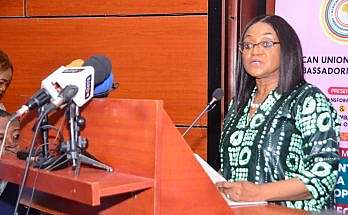Equipping Young Lawyers for the Digital Age: Afam Osigwe’s Advocacy at the Young Lawyers Forum Agbor Branch Summit.
At the Young Lawyers Forum Agbor Branch summit, Afam Osigwe, SAN, passionately advocated for the necessity of equipping young lawyers with IT and digital skills in light of the rapid development of technology in legal practice.
In his keynote address on the topic “Young Lawyers as the Future of the Bar and Bench; ICT and New Horizons of Legal Practice,” the learned silk emphasized the pivotal role of young lawyers as not merely participants, but architects of the evolving legal profession.
He stressed that our ability to adapt, innovate, and harness the potential of ICT will define the trajectory of the bar and bench for years to come. While acknowledging the weight of this responsibility, Osigwe also highlighted the incredible opportunity it presents for young lawyers to lead positive change and drive progress in our noble profession.
Challenges on the Horizon:
Osigwe also acknowledged the challenges inherent in integrating ICT into legal practice, with the digital divide being one of the primary obstacles. He underscored how this divide exacerbates existing disparities in access to technology and legal resources, particularly in rural or underserved areas where limited internet connectivity and technological infrastructure hinder the adoption of ICT tools, thereby creating barriers to justice for marginalized communities.
Tackling the Digital Divide:
To confront these challenges head-on, Osigwe advocated for a multifaceted approach encompassing advocacy, education, and collaboration. He emphasized the importance of advocating for policies and initiatives that promote universal access to technology and broadband internet, especially in rural areas. By engaging with policymakers and technology stakeholders, Osigwe urged young lawyers to champion efforts aimed at bridging the digital divide and ensuring that every individual has equitable access to technology in the digital age.
Promoting Digital Literacy:  Recognizing that proficiency in using technology for personal purposes does not necessarily translate to the specialized skills required for ICT-driven legal practice, Osigwe stressed the critical importance of promoting digital literacy and skills development among legal professionals and the broader community. He advocated for investment in training programs, workshops, and continuing education opportunities to equip young lawyers with the knowledge and skills needed to navigate the digital landscape effectively and leverage ICT tools to enhance legal practice.
Recognizing that proficiency in using technology for personal purposes does not necessarily translate to the specialized skills required for ICT-driven legal practice, Osigwe stressed the critical importance of promoting digital literacy and skills development among legal professionals and the broader community. He advocated for investment in training programs, workshops, and continuing education opportunities to equip young lawyers with the knowledge and skills needed to navigate the digital landscape effectively and leverage ICT tools to enhance legal practice.
Upholding Ethical Standards:
Osigwe also underscored the ethical complexities inherent in ICT-driven legal practice, from safeguarding client confidentiality in an era of data breaches to ensuring the integrity and reliability of AI-driven legal analysis. He emphasized the paramount importance of upholding the highest ethical standards as stewards of justice. By adhering to established ethical guidelines, staying informed about emerging issues, and seeking guidance from mentors, young lawyers can navigate the ethical challenges of ICT with integrity and professionalism.
Collaborative Solutions: Finally, Osigwe emphasized the necessity of adopting a collaborative and interdisciplinary approach to address the challenges of ICT in legal practice.
Finally, Osigwe emphasized the necessity of adopting a collaborative and interdisciplinary approach to address the challenges of ICT in legal practice.
He urged young lawyers to forge partnerships with technology experts, policymakers, and community organizations to leverage collective expertise and resources in developing innovative solutions that promote access to justice, enhance efficiency, and uphold ethical standards.
Through collaboration, young lawyers can harness the full potential of ICT to create a more inclusive, equitable, and effective legal system for all.
Afam Osigwe, SAN’s keynote address served as a rallying cry for young lawyers to embrace the opportunities presented by ICT while simultaneously addressing the challenges it poses. By equipping ourselves with IT skills, advocating for universal access to technology, promoting digital literacy, upholding ethical standards, and fostering collaboration, young lawyers can indeed serve as catalysts for positive change in the legal profession, ensuring that justice remains accessible to all in the digital age.




